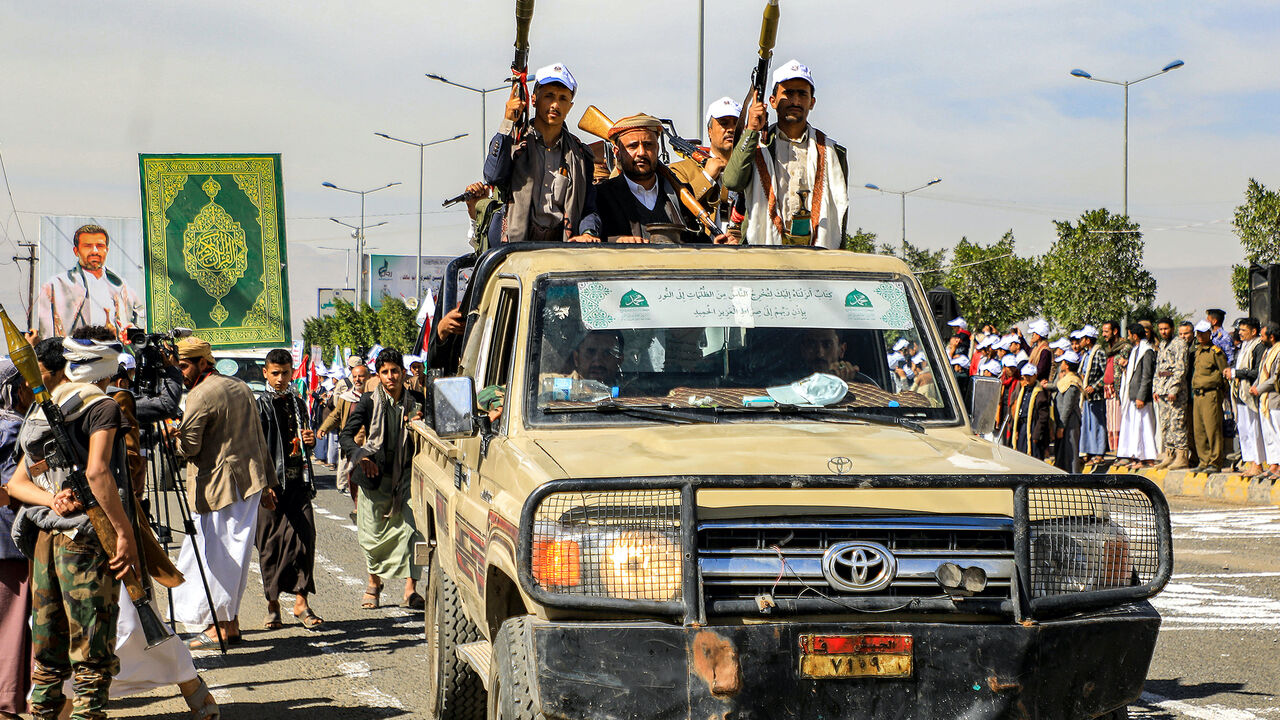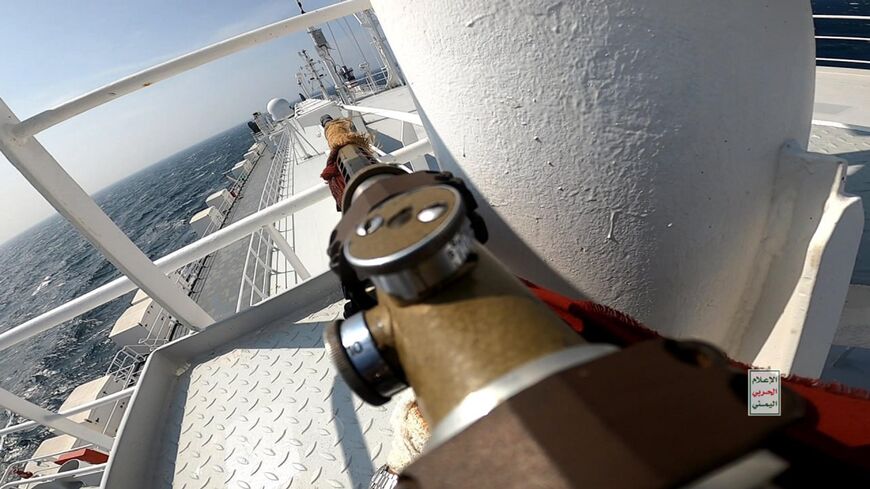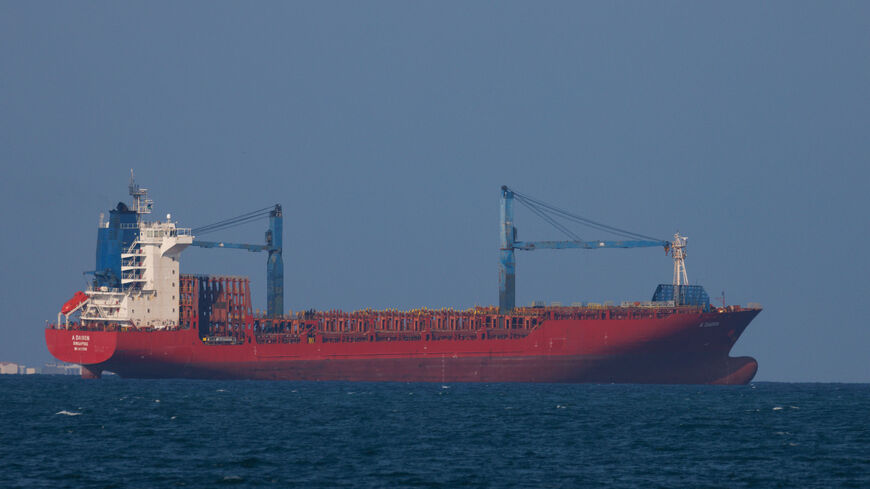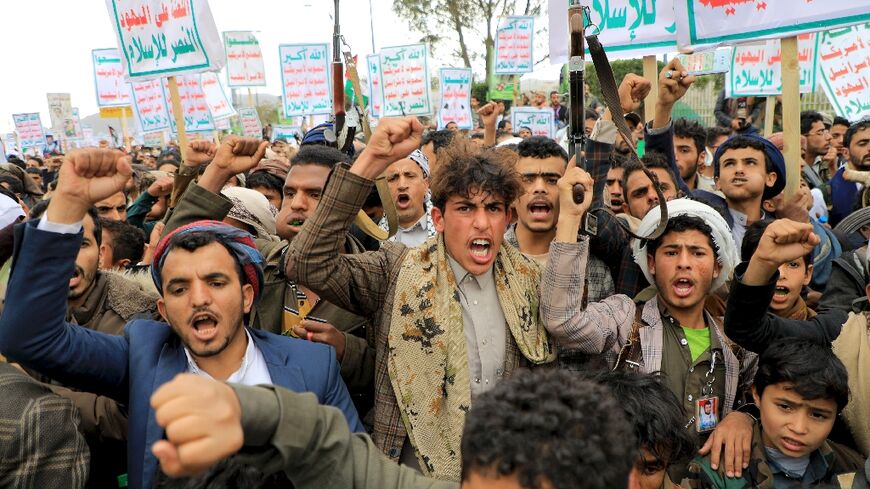US designation of Houthis as terror group comes into effect
The Houthi struck a Panama-flagged tanker ship in the Gulf of Aden with a missile as Washington restored its terror designation on the group in a bid to clamp down on its attacks on commercial shipping.

WASHINGTON — The Biden administration’s decision to redesignate Yemen’s Houthi rebel movement as a terrorist organization went into effect on Friday after the White House announced the decision last month.
The move to restore the Houthis' status as a specially designated terror group (SDTG) came in response to continued missile attacks launched by the faction into commercial shipping lanes in the Red Sea and Bab el-Mandeb with the support of Iran, according to US officials.
The redesignation of the Houthis as a terror group partially reverses one of the first foreign policy decisions carried out by President Joe Biden after he took office.
The Biden administration rescinded the Trump-era terror SDGT and foreign terrorist organization (FTO) designations on the Houthis in January 2021, as the White House sought to end Yemen’s civil war via diplomacy and remove obstacles to the delivery of humanitarian in the country.
The decision to restore only the SDGT designation came after the State Department, USAID and Democrats in Congress objected to reapplying the FTO designation, which critics have said would do more to hinder humanitarian access than the SDGT designation alone.
The move comes as the United States and its allies have deployed major naval and air assets to the Middle East in recent months in a high-stakes bid to contain the fallout from Israel’s war in the Gaza Strip.
The Houthis struck a Panama-flagged crude oil tanker, the MT Pollux, with a missile in the Gulf of Aden on Friday, inflicting damage but not resulting in any casualties, monitoring agencies said.
The group have fired dozens of anti-ship missile and drone attacks into commercial shipping lanes off Yemen’s coast since mid-November. The faction, which US officials say receives precision-guided weaponry and targeting intelligence from Iran, has advertised its attacks as retaliation for Israel’s war in the Gaza Strip.
At least three rounds of air and naval strikes led by the United States and United Kingdom since Jan. 11 have failed to halt the Houthi projectile attacks, as have many additional intermittent rounds of dynamic airstrikes which the US military has carried out unilaterally.
The Houthis have hit at least four ships with ballistic missiles, inflicting minor damage in most cases. The strikes have significantly disrupted commercial shipping traffic through the Suez Canal, posing an economic setback for Egypt’s cash-strapped government.
Pentagon officials last week said the US- and UK-led strikes aim to reduce the Houthi attacks to a tolerable level to minimize the danger to commercial shipping, tacitly acknowledging that the strikes are unlikely to fully halt the Houthis’ attacks.
The group launched another anti-ship ballistic missile on Thursday afternoon at a UK-owned, Barbados-flagged bulk carrier, the MV Lycavitos, in the Gulf of Aden, the US military confirmed.
The US military on Thursday also preemptively struck three anti-ship cruise missiles that were prepared to launch in Houthi-controlled areas of Yemen, according to US Central Command.
The United States has sought to erode the Houthis’ ability to conduct such attacks by adding additional sanctions while attriting their arsenal on the ground with air and naval strikes.
The United States also carried out a cyberattack on a suspected Iranian spy ship, the Behshad, in the Gulf of Aden, NBC reported. US officials said the ship has assisted the Houthis with targeting intelligence off Yemen’s coast.






